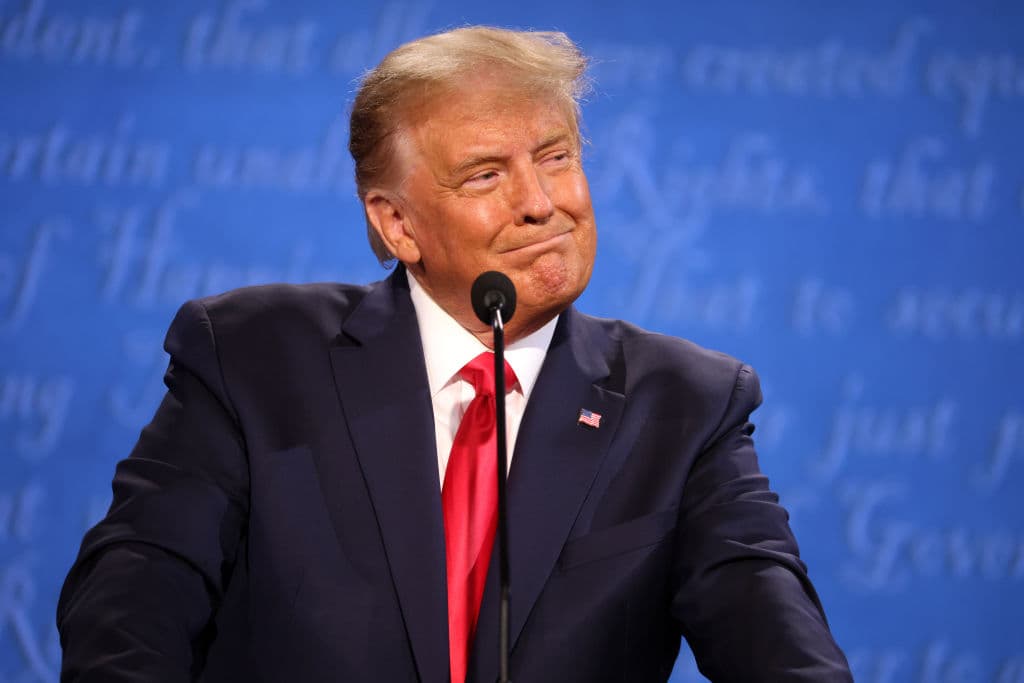Judge Cannon Orders Jack Smith To Confer With Trump Over the Former President’s Desire To Delay Trial: Which Side Will She Take?
A read of the tea leaves from a Tuesday hearing seems to suggest the jurist could be open to Trump’s arguments.

Judge Aileen Cannon’s decision to deny, for now, Special Counsel Jack Smith’s request for a protective order in the Mar-a-Lago documents case against President Trump could signal a rough road ahead for prosecutors, who could, eventually, move for a judicial detour to another court.
Judge Cannon ruled that Mr. Smith must first consult with Mr. Trump’s attorneys before she adopts the government’s request for a protocol for reviewing classified material. This suggests that she is wary of giving the government carte blanche to set the rules when it comes to handling America’s secrets.
The rejection of the protective order — after Mr. Smith’s office submitted a draft version that Judge Cannon could have adopted or revised — could be telling. In a brief note accompanying the order, she marked that her decision was driven by a “lack of meaningful conferral,” meaning that the two sides did not sufficiently hash things out.
Mr. Smith’s draft order proposed that “Defendants shall only have access to Discovery Materials under the direct supervision of Defense Counsel or a member of Defense Counsel’s staff.” That is, Mr. Trump would be unable to view the evidence against him without his lawyers present. He would also be banned from disclosing any material to “the public or the news media” or disseminating it “on any news or social media platform.”
Judge Cannon’s insistence that she would not sign such an order — District Attorney Bragg asked for a similar one in his criminal prosecution of Mr. Trump — suggests that she would like the two sides to reach consensus. In practice, though, that means that Mr. Trump’s side could potentially pursue a tactic of delay by means of refusal to meet.
Mr. Smith retains a number of options should Judge Cannon’s proclivity for conferral grind the proceedings to a halt. He could ask the riders of the 11th Circuit to step in, or even for Judge Cannon to recuse herself. Then again, there is the looming indictment at the District of Columbia in respect of January 6. Mr. Trump could argue that preparing for that case requires a delay in this one.
The order followed a pretrial conference that saw Mr. Trump’s attorneys lock horns with Mr. Smith’s office. The central issue is the setting of a trial date. The special counsel has requested that jury selection begin on December 11, and the former president indicates a preference for an indefinite delay until after the 2024 election. Judge Cannon said she would outline a schedule “promptly”
Judge Cannon appeared to be swayed by neither side. According to CNN, she told prosecutors that a December date would indicate a “compressed” cadence, especially given the “voluminous” evidence that prosecutors have turned over as part of discovery. During the hearing, it was disclosed that this tranche comprises 1,545 pages of classified material, and more than a million pages overall.
Mr. Smith contends in another filing that “neither the amount of classified discovery in this case nor the timetable for its production is a reason for an indefinite continuance of the trial date.” In court on Tuesday, one of his deputies, David Harbach, rejected the notion proffered by the Trump team that the case constitutes a “squaring off” between presidents Biden and Trump.
Judge Cannon appeared hesitant to accede to Mr. Trump’s contention that, as he put it in a filing, the “Government’s request to begin a trial of this magnitude within six months of indictment is unreasonable, telling, and would result in a miscarriage of justice.”
Mr. Harbach, though, swatted aside the accusation of “political influence,” noting that Mr. Trump was a “private citizen” and “no longer the president.” A “grand jury in this district,” he reminded Judge Cannon, “returned an indictment of these defendants and they deserve a trial.”

